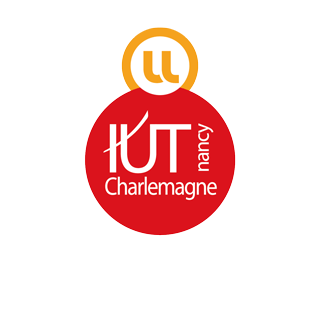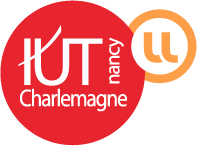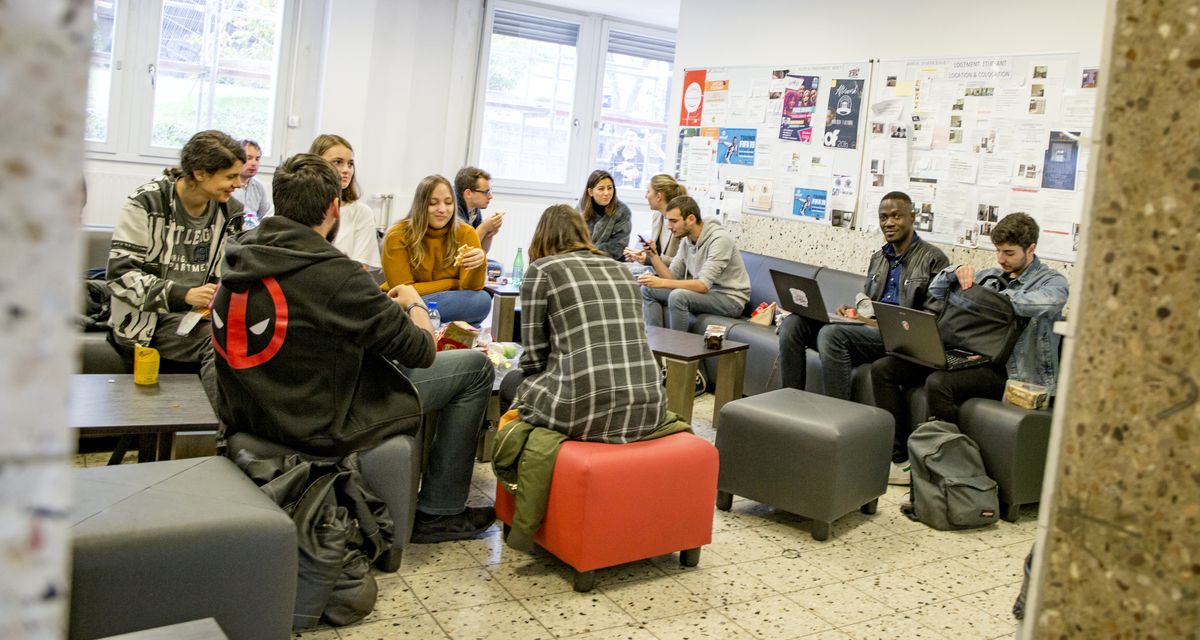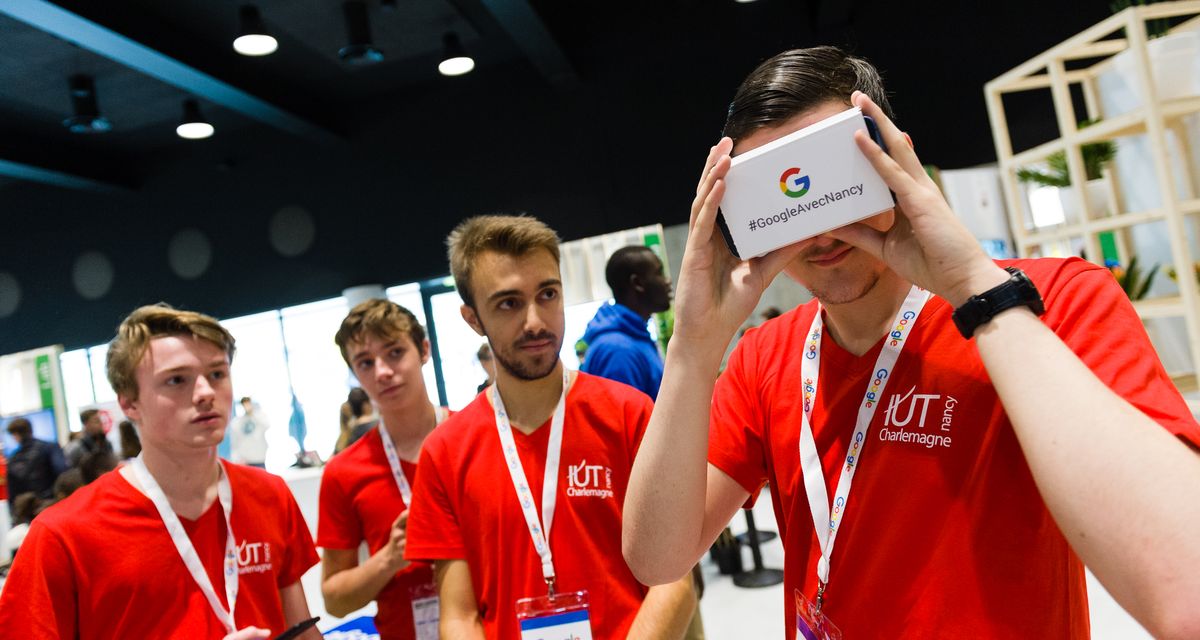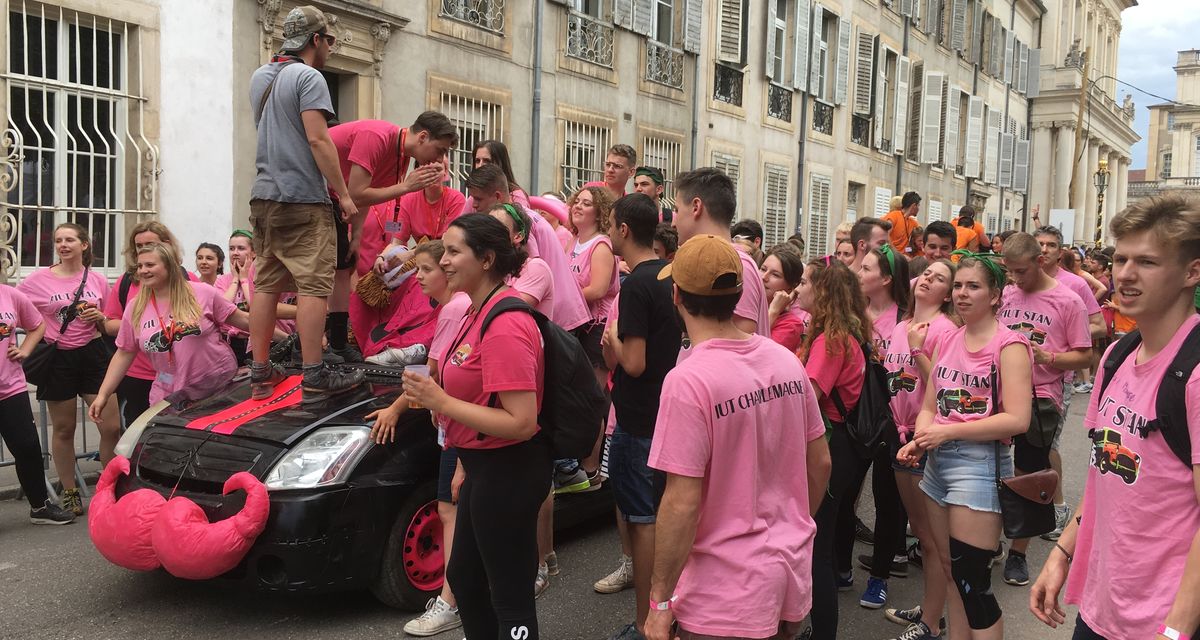Studying at IUT
Where we fit in – and where you can fit in too!
The IUT Nancy-Charlemagne is part of University of Lorraine.
As an Erasmus student from a partner University, you are entitled to study priority at the IUT. In some cases, we can accept that you take some courses at Campus Lettres faculty.
The difference between Campus Lettres teaching and research units (known as UFRs in France) and its IUT (Institute of Technology) Nancy-Charlemagne is that the IUT employs not only academics, but lecturers who are currently working within their own professions. Classes at the IUT also tend to be smaller, using a system of continuous assessment rather than end-of-semester exams only, and with quite a strong emphasis on group-work and projects. This can be helpful if your level of oral and written French is ‘shaky’ at the beginning of your stay in France!
Study Programme
You can choose courses from any area of study, but we would strongly recommend that you choose those from your own area of study, or at least within one area of study, to facilitate both your timetable and your integration into the IUT.
We would strongly advise, anyway, that you wait until you arrive at Nancy, and consult with the International Relations Office, before making your final selection of courses, as timetables – and your level of French – will have to be taken into account.
Nonetheless, it’s a very good idea to learn as much as possible about the various departments, and the courses available to Erasmus students within those departments, before you come to Nancy. Learn, too, the abbreviated form of the name of your department of choice in French, as French people tend to use abbreviations and acronyms all the time!
Departments at the IUT
You have five Departments to choose from, and courses in all of them are delivered through French:-
International Week
This is not a course, but carries ECTs, and it is a good opportunity to learn a little bit about other European countries, and a chance to ‘fly the flag’ for your own! It’s held every year in November, and each foreign university represented at the IUT is invited to set up a stand, showing off its own country’s particular culture, and supplying information on the university itself. Posters, brochures and photographs explaining the geography, the history, and the traditions of your country are all encouraged, while music and tastings of typical food or drink from the visiting country are definitely much appreciated!
It’s good fun, and a good chance to show off a bit of home…
ECTs
There is a very simple rule of thumb regarding the number of credits you will gain for successfully completing courses. Ten hours of class equals one European Credit Transfer – provided you pass the requisite exams afterwards! If a particular lecturer, however, decides that the amount of extra work involved (such as projects) merits more credits than those awarded for the hours spent in class for his/her course, this will be agreed between the lecturer and the university authorities. The International Relations office at the IUT Nancy-Charlemagne will be able to tell you how many credits each of your choices will earn.
Taking your courses
Here are some rules to observe when attending courses at the IUT:
- You must attend every lecture or seminar of the courses you have chosen.
- As an Erasmus or international student, you have got the same rights and obligations as French students, including the methods of assessment.
- When you attend a lecture or seminar for the first time, please introduce yourself to the teacher.
The IUT runs a system of continuous assessment. It means you will have different assignments to hand in throughout the whole semester. This means that although the work load usually reaches a peak at the end of each semester, and you will have to work even harder then, at least there are no harrowing blocks of exams waiting for you at the end of each semester at IUT!
Academic Calendar
The academic year is beginning very early in September (the first week of September for some departments like TC, Informatique, GEA). See departments and courses
International Relations for incoming students
Contacts
- Katia GÉRARDIN
- 0033/ (0)37274 33 60 / 61
- iutnc-international[at]univ-lorraine.fr
Opening hours
open from 8:30 to 12:30 and from 13:30 to 17:00
wednesday
open from 8:30 to 12:00 and from 13:30 to 17:00
friday
open from 8:30 to 12:30 and from 13:30 to 16:00
Download our welcome guide
Search
Nos équipes pédagogiques se mobilisent pour votre réussite et s’engagent pour votre succès !
Choisir l’IUT Nancy-Charlemagne
C’est intégrer une formation universitaire ouverte sur la vie professionnelle, en cohérence avec vos ambitions et vos objectifs. Au sein de l’Université de Lorraine, l’IUT Nancy-Charlemagne possède de nombreuses formations dans les domaines du commerce, de l’informatique, de l’information-communication, de la gestion et du multimédia. L’IUT vous propose 17 parcours de B.U.T., 1 Licence Professionnelle et 2 Diplômes d’Université permettant une insertion professionnelle immédiate ou une poursuite d’études.
Apprendre autrement, la pédagogie de la réussite
Les enseignements sont dispensés en petits groupes de travail favorisant l’accompagnement et le suivi de chaque étudiant, évalué en contrôle continu. Des projets tutorés, des Saé (situation d'apprentissage et d'évaluation) ainsi que 22 à 26 semaines de stage en entreprise, en France ou à l’étranger, vous permettent de découvrir le monde professionnel. Vous bénéficiez également, lors des cours, de la présence de nombreux intervenants extérieurs en prise directe avec les milieux professionnels.
